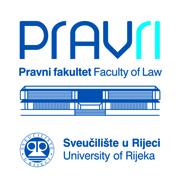LEGAL DRAFTING IN CROATIA
CASE STUDY
DOI:
https://doi.org/10.30925/zpfsr.38.1.4Keywords:
legal drafting; nomotechnics; utility servicesAbstract
This paper highlights the importance of legal drafting and its essential
elements, which has not drawn a lot of attention in the Republic of Croatia so far.
The paper emphasises the importance of proportionality in the simplicity and legal
distinctness of a legal text in the process of drafting for the purpose of its clarity.
The paper also presents objective requirements necessary for quality legal drafting,
as well as subjective qualities of the drafters. With the purpose of drawing attention
to imperfections in the legal drafting in Croatia, some defi ciencies are presented in
the process of drafting and amending of the Utility Services Act. The process of
drafting and amending of this Act is a good example of the way how legal drafting
should not be done. It contains a lot of defi ciencies and failures that are the result of
legal drafting mistakes. At the end, authors expect that the adoption of the Uniform
methodology and nomotechnical rules for the drafting of acts enacted by Parliament
should contribute to the higher quality of legal texts and to their full adjustment to the
general requirements of legal certainty and rule of law.
Additional Files
Published
How to Cite
Issue
Section
License
Collected Papers is an open access journal. Journal does not charge article processing charges (APC) to authors. It is licensed under CC BY-NC licence 4.0.
Collected Papers of the Law Faculty of the University of Rijeka" is an Open Access journal. Users are allowed to read, download, copy, redistribute, print, search and link to material, and alter, transform, or build upon the material, or use them for any other lawful purpose as long as they attribute the source in an appropriate manner according to the CC BY licence.
The papers published in "Collected Papers of the Law Faculty of the University of Rijeka" can be deposited and self-archived in the institutional and thematic repositories providing the link to the journal's web pages and HRČAK.
Upon acceptance of the manuscript for publication by this journal, the author can publish same manuscript in other journals only with the permission of the Editorial Board (secondary publication). A repeated publication should contain a notice as to where the manuscript was originally published.



